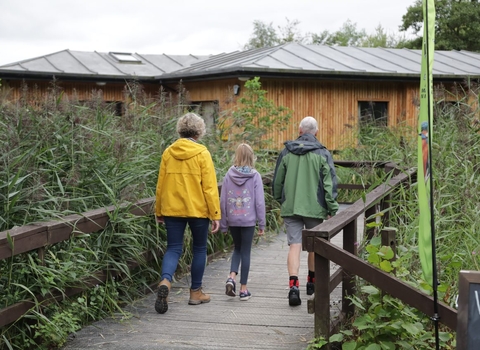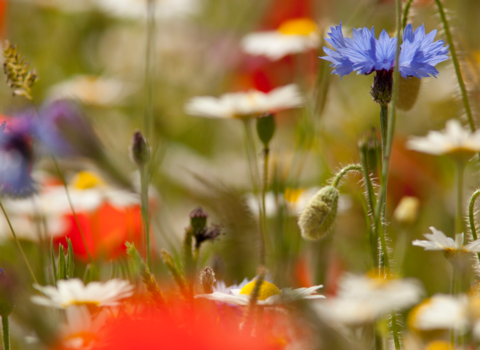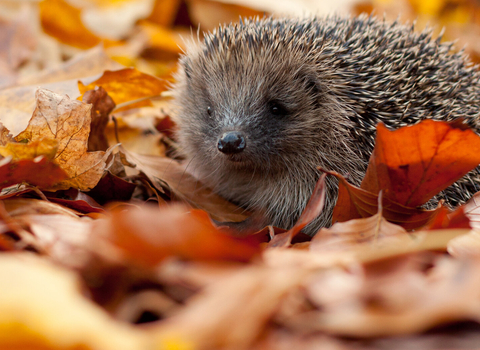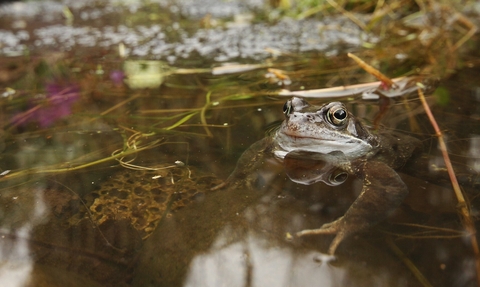
A common frog (Rana temporaria) guards frogspawn - Luke Massey/2020VISION
Nature heroes are taking action for wildlife under threat - but there is more to do
The past year has taught us many things – how to bake banana bread being chief among them. But for many across our region, this period of uncertainty has shown just how important nature is to our mental health and physical wellbeing in times of crisis.
As we spent more time inside, wildlife came out to play. Who can forget the images of goats heading down from the hills to take over the deserted streets of Llandudno in north Wales? But even closer to home, across Lancashire, Manchester and North Merseyside, nature was making itself known. Here at the Lancashire Wildlife Trust, we wanted to find out more about how wildlife was responding to the new conditions and how that impacted our interactions with nature. That’s why, across our social media channels, we have been conducting a survey all about local wildlife… and the results are in!
Having a garden and allotment gave me a purpose to carry on as all volunteering, choir and activity clubs stopped, I couldn’t visit family so there was no reason to go out. I have been very lucky.
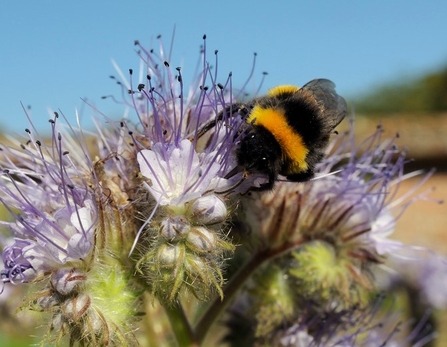
White-tailed bumblebee - Nick Upton/2020 Vision
Whether getting outside for a wildlife walk or just admiring nature from the window, almost every respondent to our survey had interacted with nature in a meaningful way over the past year. Many told us that lockdown had given them more time to spend in nature and they had the opportunity to spot lots of creepy crawlies and critters. Bumblebees took the top spot with over 900 spotted while blackbirds came in at a close second.
And its good news for hedgehogs – over 500 of our spikey friends were recorded! Just last year, these once-common garden visitors were classified as officially vulnerable to extinction in the UK due to their rapidly declining numbers caused in part by urban development and hedgerow removal. If you spotted a hedgehog in your garden or want to learn more about how to protect these cute critters, download our Help a Hog Guide that has all the information you need to provide safe nesting places, learn how to 'un-garden' and get your neighbours involved to help reverse the fortunes of these wonderful animals.
But many respondents have not just been watching wildlife from their windows. Almost 100% of the people that took part in the survey had been inspired to take action. Across our region, our community plans to or has been planting nectar-rich flowers, putting up bird feeders, litter picking – and that’s just a small selection of over 3,200 individual actions recorded that will have a hugely positive impact on the wildlife on your doorstep.
During the first lockdown I recorded nine species of bee in my back garden, this got my attention, so by adding bee hotels and allowing areas to go wild I have identified 16 species this year.
Luckily for us, the impact of nature is not a one-way street – nature gives back. The vast majority of survey respondents said that nature has had a positive impact on their physical and mental health. 92% believe that nature has been important to their mental wellbeing and 89% said it helped them to relax over the past year.
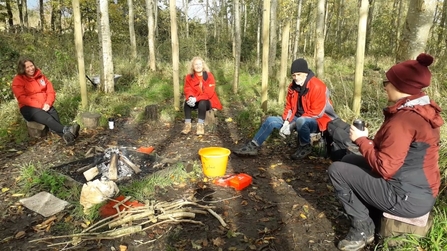
MyPlace session at Brockholes Nature Reserve
With mental health concerns on the rise and an estimated 1 in 4 people experiencing a mental health problem of some kind each year in England, it has been uplifting to see people across our region recognise the positive effects nature can have during this period of crisis. In fact, the positive impact of the natural world is at the heart of our ecotherapy project, MyPlace. MyPlace aims to reconnect people with nature through activities that can reduce stress, anxiety and many low-level mental health conditions whilst also improving physical fitness, health and wellbeing – and with fantastic results! Young people involved in the project told us that MyPlace helped them to feel calmer, happier and more confident. Click here to find out more and to see how you can get involved.
Nature helped me survive lockdown and furlough.
But our survey also showed us how much work there is still to do to help nature and our communities thrive across our region. The destruction of habitats that are vital for wildlife have left some of our most loved creatures vulnerable to extinction, so it is no surprise that 10 respondents reported that they have seen none of the creepy crawlies and critters featured in our survey. What's more, a number told us that factors like health and mobility held them back from interacting with nature. Here at the Lancashire Wildlife Trust, we believe that wildlife is essential to a healthy environment and we are working every day to ensure that everyone has the opportunity to engage with nature. Your thoughtful survey responses will help to inform that work going forward and strengthens our commitment to make our green spaces accessible for all.
Across the region, nature heroes are working to protect threatened species and their habitats on our doorstep and creating safe havens for both humans and wildlife, but there is still more to do. From all of us at the Lancashire Wildlife Trust, thank you.

